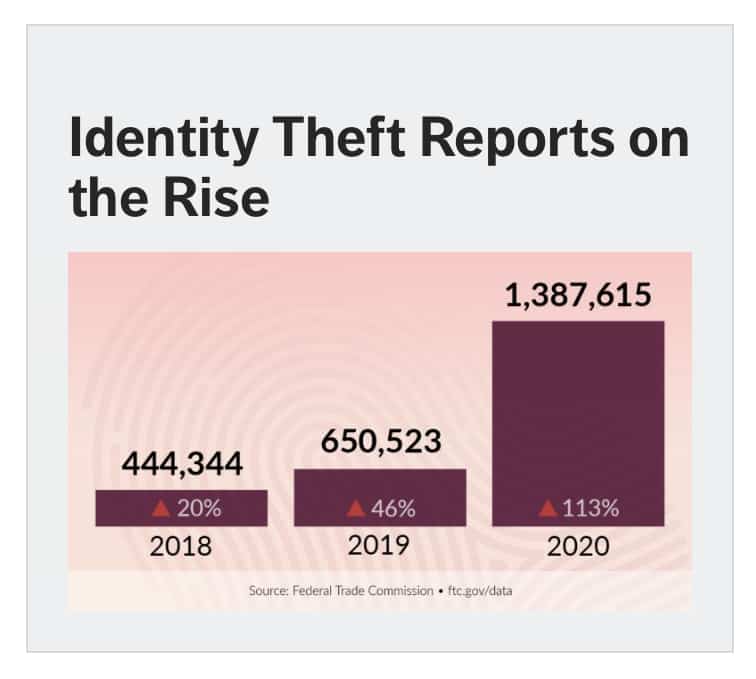Christina Lariviere, a Bow woman known by many aliases was charged last month with stealing the identities of elderly people who lived at the Londonderry long-term care facility where she worked.
Lariviere’s victims’ ages are a 100-year-old, a 97-year-old, a 92-year-old, and an 87-year-old.
Millions of consumers are victims of identity fraud and identity theft every year, but the Federal Trade Commission (FTC), a consumer protection agency, reports identity theft in the U.S. skyrocketing to nearly 1.4 million in 2020, more than double that in 2019 at 650,523.
The most common type of fraud involves criminals posing as others to wheedle money or personal information from victims. For example, the crooks may masquerade as a government employee; romantic interest; or relative or friend with an urgent financial need.
Scammers are taking advantage of the most vulnerable struggling to get through the chaos created by the COVID-19 pandemic. They’ve tried to rip people off or steal their sensitive information in different ways. See the FTC’s Coronavirus Advice for Consumers to learn about their schemes and how to avoid them.

FTC research shows that Hispanic-Latino communities report less fraud than other communities. If you come across something you think is a scam, the FTC wants you to let them know: ftc.gov.complaint.
The FTC also produced a series of fotonovelas to help raise awareness about scams in the Hispanic-Latino community. They cover work-from-home jobs that don’t pay, predatory yo-yo financing when you buy a car, fake debt relief programs, bogus debt collectors, and more.
The impact on victims and their families can be financially and emotionally devastating, especially for older Americans, reports AARP New Hampshire.
AARP created the Fraud Watch Network to empower consumers to spot and avoid scams, and to provide support and guidance to victims and their families when fraud happens. You can find a wealth of resources at aarp.org/fraudwatchnetwork.
AARP NH is hosting a 45-minute Identity Protection webinar on September 15 at 11 am.
This webinar is free, but registration is required: https://aarp.cvent.com/ProtectYourIdentity
Publisher’s Note: this story is an aggregate from report by AARP, AARP NH, and the FTC.




